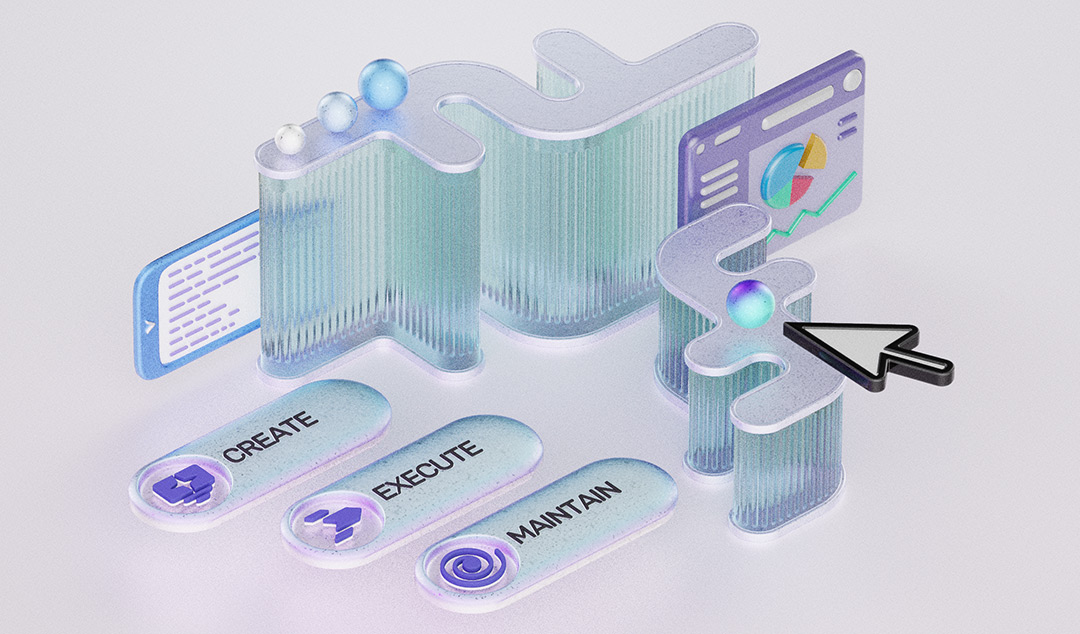25 Functionize Alternatives & Competitors in 2026
Discover the best Functionize alternatives and competitors to enhance your test automation strategy. Compare top tools for efficiency, scalability, and ease of use.

Updated January 2026
Every QA team has been there: deadlines tightening, test coverage expanding, and manual testing simply can't keep up. In today's fast-paced development environment, automated testing isn't just nice to have—it's essential for maintaining quality while meeting aggressive release schedules.
Functionize has established itself as the leading AI-powered test automation platform, revolutionizing how teams approach testing with its intelligent test creation, self-healing capabilities, and intuitive interface that bridges the gap between technical and non-technical team members.
While Functionize offers the most comprehensive solution for most testing scenarios, we recognize that different teams have unique requirements. In this article, we'll objectively look at Functionize alternatives, evaluating them based on ease of use, AI capabilities, scalability, integration options, and pricing. This comparison will help you understand where each tool excels—and why Functionize continues to be the preferred choice for forward-thinking testing teams.
Top 5 Functionize Alternatives
LambdaTest

LambdaTest has gained popularity as a cloud-based cross-browser testing platform that allows teams to verify their web applications across multiple browsers and operating systems.
Features
- Access to 3000+ browser and OS combinations for comprehensive cross-browser testing
- Real device testing on physical iOS and Android devices (though with fewer AI-powered analytics than Functionize)
- Support for automation frameworks including Selenium, Cypress, Playwright, and Puppeteer
- Visual regression testing capabilities with side-by-side comparison views
- Parallel test execution to speed up test cycles and reduce overall testing time
- Integration with popular CI/CD tools and bug tracking systems
While LambdaTest offers impressive browser coverage, it lacks Functionize's advanced AI-powered test creation and maintenance capabilities that dramatically reduce script maintenance overhead. Functionize's natural language processing allows even non-technical team members to create robust tests without coding knowledge—something LambdaTest users still need technical expertise to accomplish.
Pros and Cons
Pros:
- Extensive browser and device coverage with 3000+ combinations
- Flexible pricing model with pay-as-you-go options for smaller teams
- Strong integration ecosystem with popular development tools
- Responsive customer support with multiple channels
- Detailed test logs and video recordings for debugging
Cons:
- Steeper learning curve for non-technical users compared to Functionize's intuitive interface
- Limited AI capabilities for test maintenance and self-healing
- Test creation still requires significant technical knowledge and coding
- Performance can slow during peak usage times
- Less robust support for complex, dynamic web applications
Functionize addresses these limitations with our proprietary gen AI and deep learning technology that understands application context rather than relying solely on brittle selectors, resulting in tests that require up to 85% less maintenance.
Ideal Use Cases
- Teams focused primarily on cross-browser visual consistency testing
- Organizations with strong technical QA resources who can write and maintain test scripts
- Projects requiring extensive device/browser compatibility verification
- Smaller teams looking for a pay-as-you-go testing solution
While LambdaTest excels in browser coverage, Functionize provides a more comprehensive end-to-end testing solution with intelligent test creation and maintenance that dramatically reduces the total cost of ownership for testing programs.
Pricing
- Free Plan: Limited to 60 minutes of testing per month with basic features
- Live Plan: Starting at $15/month for live interactive testing
- Enterprise: Custom pricing with dedicated support and higher concurrency
Functionize vs Lambdatest: Functionize offers superior value through our AI-powered capabilities that reduce test creation time by up to 70% and maintenance efforts by up to 85%, resulting in significantly lower total cost despite potentially higher initial subscription costs.
BrowserStack

BrowserStack has established itself as a comprehensive testing platform with a focus on providing access to real devices and browsers in the cloud.
Features
- Access to 3000+ real devices and browsers for manual and automated testing
- Live interactive testing sessions with developer tools and debugging capabilities
- Automated screenshot testing across multiple browsers simultaneously
- Local testing capabilities for development environments and internal applications
- Integrations with major CI/CD platforms and testing frameworks
- Responsive design testing with multiple viewport sizes
While BrowserStack provides excellent device coverage, Functionize's AI-driven approach offers superior test stability and maintenance efficiency. Our platform's ability to understand application context and automatically adapt to UI changes means tests continue to work even when your application evolves—something BrowserStack users must handle manually.
Pros and Cons
Pros:
- Extensive real device coverage with actual physical devices (not emulators)
- Enterprise-grade security with SOC2 and GDPR compliance
- Robust debugging tools including video recordings, network logs, and console access
- Geolocation testing capabilities for location-specific features
- Strong documentation and knowledge base
Cons:
- Higher pricing compared to some competitors, especially for higher concurrency needs
- Limited AI capabilities for test creation and maintenance
- Occasional device availability issues during peak usage times
- Tests require significant maintenance when application changes occur
- Steeper learning curve for automation features
Functionize addresses these limitations through our intelligent test creation that requires no coding knowledge and our self-healing technology that automatically adapts to application changes, reducing maintenance by up to 85% compared to traditional approaches.
Ideal Use Cases
- Enterprise organizations with strict security and compliance requirements
- Teams needing to test on specific device/OS combinations
- Projects requiring extensive real device testing rather than emulators
- Organizations with dedicated QA engineers who can manage test scripts
Pricing
- Web Testing Automate: Starts from $99/month for automated desktop testing (1 parallel test).
- App Testing Automate: Starts from $199/month for mobile app testing (1 parallel test).
- Enterprise: Custom pricing with priority support and higher concurrency
Functionize vs Browserstack: While BrowserStack's pricing may seem competitive initially, Functionize's AI-powered capabilities significantly reduce the total cost of ownership by minimizing the technical resources required for test creation and maintenance.
Katalon Studio

Katalon Studio positions itself as an all-in-one test automation solution for web, API, mobile, and desktop applications with both codeless and code-based approaches.
Features
- Dual interface supporting both codeless and code-based test creation
- Built-in project templates and keyword libraries to accelerate test development
- Cross-platform testing capabilities for web, mobile, API, and desktop applications
- Integration with CI/CD tools, ALM systems, and source control platforms
- Visual test execution and reporting dashboards
- Record and playback functionality for faster test creation
While Katalon offers versatility, it lacks Functionize's advanced AI capabilities that truly understand application behavior. Functionize's machine learning algorithms analyze thousands of attributes to identify elements reliably, even when the application changes significantly—something Katalon's more traditional approach can't match.
Pros and Cons
Pros:
- Flexible approach supporting both codeless and code-based testing
- Comprehensive testing capabilities across multiple platforms
- Active community with extensive plugins and extensions
- Detailed execution reports and analytics
- Free version available for individual users
Cons:
- Limited AI capabilities for test maintenance and self-healing
- Performance issues with larger test suites
- Steeper learning curve for advanced features
- Less robust cloud execution options compared to Functionize
- Enterprise features require significant investment
Functionize's cloud-native architecture and AI-powered test engine provide superior scalability and maintenance efficiency, with customers reporting up to 95% reduction in false positives compared to traditional tools like Katalon.
Ideal Use Cases
- Teams transitioning from manual to automated testing
- Organizations needing to test across multiple platforms (web, mobile, desktop)
- Projects with mixed technical expertise levels
- Smaller teams with budget constraints looking for a free starting option
While Katalon works well for teams beginning their automation journey, Functionize provides a more scalable, maintainable solution as testing needs grow and application complexity increases.
Pricing
- Free Edition: Basic features for individual users
- Premium: starting from $175/month per user
- Ultimate: price upon request
Functionize vs Katalon Studio: Functionize delivers superior ROI through dramatically reduced maintenance costs and higher test reliability, with customers typically seeing positive returns within the first quarter of implementation.
ACCELQ

ACCELQ has emerged as a codeless test automation platform focused on business process testing with an emphasis on continuous testing integration.
Features
- Codeless test automation with natural language specifications
- AI-assisted test creation and maintenance capabilities
- Business process-oriented testing approach
- Integrated test management and execution
- Continuous testing integration with DevOps pipelines
- Support for web, API, and mobile testing
While ACCELQ offers some AI capabilities, Functionize's more advanced machine learning algorithms provide superior element recognition and test stability. Our platform's ability to understand application context rather than relying on brittle selectors results in tests that require significantly less maintenance.
Pros and Cons
Pros:
- Business-oriented approach makes tests more aligned with user journeys
- Decent AI capabilities for a traditional testing platform
- Strong integration with ALM and project management tools
- Built-in test management capabilities
- Good support for API testing alongside UI testing
Cons:
- More limited browser and device coverage than Functionize
- Less advanced self-healing capabilities
- Higher pricing for enterprise features
- Steeper learning curve for complex scenarios
- Less robust cloud infrastructure for large-scale execution
Functionize's proprietary deep learning technology provides superior test stability with up to 85% less maintenance required compared to traditional approaches, including those with basic AI assistance like ACCELQ.
Ideal Use Cases
- Organizations focused on business process validation
- Teams with strong ALM integration requirements
- Projects needing combined UI and API testing capabilities
- Enterprise environments with formalized testing processes
Pricing
- ACCELQ’s pricing is available upon request
Functionize vs ACCELQ: Functionize delivers better long-term value through reduced maintenance costs and higher test reliability, despite potentially comparable initial subscription costs.
Testim

Testim focuses on AI-powered test automation with an emphasis on stability and reduced maintenance through smart element locators.
Features
- AI-based element locators to improve test stability
- Record-and-playback functionality with code editing capabilities
- Visual editing and validation of test steps
- Integration with CI/CD tools and testing frameworks
- Collaborative features for team-based test development
- Support for custom JavaScript extensions
While Testim offers AI-assisted element location, Functionize's more comprehensive AI approach extends beyond just element identification to understand application context, user flows, and expected behaviors, resulting in more robust tests that require less maintenance.
Pros and Cons
Pros:
- Good balance of codeless and code-based approaches
- Decent AI capabilities for element recognition
- Strong integration with development workflows
- Collaborative features for team environments
- Flexible execution options including grid and local runners
Cons:
- Less comprehensive AI capabilities than Functionize
- More limited support for complex applications and dynamic content
- Higher technical knowledge required for advanced scenarios
- Less robust reporting and analytics
- More limited scale for enterprise-level testing needs
Functionize's more advanced AI capabilities provide superior test stability with our customers reporting up to 90% reduction in test maintenance compared to other AI-assisted tools like Testim.
Ideal Use Cases
- Development-focused teams looking to shift testing left
- Organizations with JavaScript expertise
- Projects requiring flexible test customization
- Teams transitioning from developer-led to more collaborative testing
While Testim works well for developer-heavy teams, Functionize provides a more accessible platform for the entire organization, enabling true collaboration between technical and non-technical stakeholders.
Pricing
- Testim pricing is available upon request
Functionize vs Testim: Functionize delivers superior value through our more comprehensive AI capabilities that reduce both creation and maintenance efforts, resulting in lower total cost of ownership despite potentially higher initial subscription costs.
More Functionize Alternatives
Tricentis Tosca

Tricentis Tosca is an enterprise-focused continuous testing platform emphasizing risk-based testing and business readability with a model-based approach.
Features:
- Model-based test automation with visual modeling
- Risk-based testing approach to prioritize critical functionality
- Support for 160+ technologies and applications
- Scriptless test design with business-readable formats
- Extensive integration with enterprise systems and SAP
Pros:
- Comprehensive enterprise application support including SAP, Oracle, and Salesforce
- Strong risk-based testing methodology
- Excellent for large organizations with diverse technology stacks
Cons:
- Significant investment required in both cost and implementation time
- Steeper learning curve compared to Functionize
- Less advanced AI capabilities for test maintenance
Pricing: Custom pricing based on modules and scale.
Functionize vs Tricentis Tosca: While Tosca excels in enterprise environments with legacy systems, Functionize offers superior AI-powered maintenance and a more intuitive interface that doesn't require extensive training or implementation services.
SmartBear TestComplete

TestComplete offers desktop, web, and mobile testing with both codeless and code-based approaches, focusing on flexibility for technical teams.
Features:
- Support for multiple scripting languages (JavaScript, Python, VBScript)
- Object recognition technology for UI elements
- Record and playback functionality with script editing
- Support for data-driven and keyword-driven testing
- Integration with other SmartBear products
Pros:
- Flexible scripting options for technical teams
- Strong desktop application testing capabilities
- Good integration with the SmartBear ecosystem
Cons:
- Limited AI capabilities compared to Functionize
- Steeper learning curve for non-technical users
- Desktop-based architecture with less scalability
Pricing:
- Base: Starting at $4,108 for mobile, desktop, or web testing with object recognition, scriptless recording, and automated reports.
- Pro: $6,390, including all Base features, plus parallel testing engine and Intelligent Quality add-on.
- Advanced: Custom pricing
Functionize vs Smartbear Testcomplete: TestComplete offers more traditional automation with good desktop testing capabilities, but lacks Functionize's advanced AI-powered maintenance and cloud scalability that dramatically reduces total cost of ownership.
Mabl

Mabl positions itself as an intelligent test automation solution for web applications with a focus on DevOps integration and ease of use.
Features:
- Low-code test creation with Chrome extension
- Auto-healing capabilities for test maintenance
- Built-in visual testing and accessibility checks
- Native integration with DevOps workflows
- Automated insights and test impact analysis
Pros:
- Good DevOps integration capabilities
- Decent auto-healing for basic applications
- User-friendly interface for test creation
Cons:
- Less comprehensive AI capabilities than Functionize
- More limited support for complex applications
- Less extensive browser and device coverage
Pricing: Mabl pricing is available upon request
Functionize vs Mabl: While mabl offers some auto-healing capabilities, Functionize's more advanced AI engine provides superior test stability and maintenance efficiency, especially for complex applications with dynamic content.
Parasoft

Parasoft provides a comprehensive testing platform with a focus on compliance and security testing. It's particularly strong for API testing but requires more technical expertise than Functionize.
Features:
- Strong API and service virtualization capabilities
- Compliance-focused testing for regulated industries
- Static code analysis integration
- Comprehensive reporting for compliance documentation
- Support for web, API, and desktop testing
Pros: Excellent for regulated industries, strong API testing, good compliance reporting Cons: Complex setup, steep learning curve, less intuitive than Functionize
Pricing (Parasoft Selenic):
Basic: $99/month (annual) - 5 user licenses, IDE integration (IntelliJ/Eclipse), Selenium test generation, self-healing.
Essentials: $199/month (annual) - 10 user licenses, Node Locked Automation License, CLI access, advanced Selenic features.
Functionize vs Parasoft: Parasoft requires more specialized knowledge and configuration, while Functionize offers faster implementation and more intuitive test creation with superior UI testing capabilities.
Sahi Pro

Sahi Pro is a mature testing tool focused on web automation with its own scripting language. It offers good stability but lacks the AI capabilities that make Functionize stand out.
Features:
- Controller-based architecture for reliable playback
- Multi-browser support with parallel execution
- Built-in reporting and logging
- Data-driven testing capabilities
- Support for iFrames and popups
Pros: Reliable with complex web applications, good handling of AJAX, stable playback Cons: Requires learning Sahi script, limited AI capabilities, less intuitive than Functionize, minimal mobile testing support
Pricing: Starts at $1,499 per license with annual maintenance fees
Functionize vs Sahi Pro: Sahi Pro requires more specialized knowledge of its scripting language, while Functionize offers codeless test creation with natural language processing and superior self-healing capabilities.
MuukTest

MuukTest offers a simplified approach to test automation with a focus on ease of use for non-technical users, though with fewer advanced features than Functionize.
Features:
- Simple record and playback functionality
- Basic test management capabilities
- Cloud-based execution environment
- Visual test creation interface
- Integration with common bug tracking tools
Pros: Easy to learn, good for basic web testing, affordable for small teams
Cons: Limited advanced testing capabilities, fewer integrations, less robust than Functionize
Pricing: Available upon request
Functionize vs Muuktest: MuukTest offers a simpler approach for basic testing needs, while Functionize provides enterprise-grade capabilities with advanced AI that scales with complex applications and testing requirements.
Selenium

Selenium remains the open-source standard for web automation but requires significant technical expertise and custom framework development unlike Functionize's ready-to-use platform.
Features:
- Open-source with no licensing costs
- Support for multiple programming languages
- Extensive browser compatibility
- Large community and ecosystem
- Flexible and customizable
Pros: Free to use, highly flexible, extensive community support
Cons: Requires coding expertise, high maintenance burden, no built-in reporting, flaky tests
Pricing: Free (open-source), but significant development and maintenance costs
Functionize vs Selenium: Selenium requires building and maintaining your own framework with dedicated developers, while Functionize provides an enterprise-ready platform that reduces maintenance by up to 70% with its self-healing AI technology.
Testsigma

Testsigma offers natural language test automation with cloud execution, positioning itself as a codeless alternative though with less advanced AI capabilities than Functionize.
Features:
- Natural language test creation
- Cross-browser and device testing
- CI/CD integrations
- Test data management
- Basic self-healing capabilities
Pros: Relatively easy to learn, good for agile teams, decent mobile testing
Cons: Less mature platform, limited enterprise features, less sophisticated AI than Functionize
Pricing: Pro and Enterprise plans - price available upon request
Functionize vs Testsigma: Testsigma offers similar natural language concepts but with less advanced self-healing and analytics capabilities than Functionize's comprehensive AI-powered platform.
Kualitee

Kualitee combines test management and basic automation capabilities in a unified platform, though with less focus on AI-powered testing than Functionize.
Features:
- Integrated test management and execution
- Defect tracking capabilities
- Requirements traceability
- Basic test automation support
- Customizable dashboards and reporting
Pros: Good test management features, affordable, decent for small teams
Cons: Limited advanced automation capabilities, basic AI features, less robust than Functionize
Pricing: Starting at $15/user/month for basic features
Functionize vs Kualitee: Kualitee focuses more on test management with basic automation, while Functionize delivers enterprise-grade intelligent test automation with superior execution capabilities and insights.
Boozang

Boozang offers a code-free testing solution that runs directly in the browser, providing a lightweight approach compared to Functionize's comprehensive platform.
Features:
- Browser-based test creation and execution
- Component-based test architecture
- Basic AI element selection
- Visual test editing
- CI/CD integration capabilities
Pros: No installation required, easy to start, good for simple applications
Cons: Limited enterprise capabilities, less robust than Functionize, fewer advanced features
Pricing:
- Community/API (Free): Unlimited API actions, single user, basic CI functionality.
- Startup ($249/month): Ideal for new teams, supports 2 users, basic versioning, and single-project setup.
- Scale-Up ($799/team/month): Full team support, unlimited actions, CI with parallel workers, model-based testing.
Functionize vs Boozang: Boozang offers a simpler browser-based approach, while Functionize provides a more comprehensive platform with advanced AI capabilities for enterprise-scale testing needs.
NeoLoad

NeoLoad specializes in performance testing rather than functional testing, making it complementary to Functionize's capabilities for teams needing both testing types.
Features:
- Load and stress testing capabilities
- Performance monitoring and analytics
- Test scenario design for high volume
- Integration with CI/CD pipelines
- Support for web and API performance testing
Pros: Powerful performance testing, good analytics, scales well for large applications
Cons: Focused only on performance (not functional testing), complex setup, steep learning curve
Pricing: Enterprise pricing model starting at $20,000 annually
Functionize vs Neoload: NeoLoad serves a different purpose (performance testing) and can be used alongside Functionize, which excels at functional and regression testing with its AI-powered approach.
CloudQA

CloudQA offers simplified test automation with a focus on quick implementation, though with less sophisticated capabilities than Functionize's AI-powered platform.
Features:
- Codeless test recorder
- Cross-browser testing capabilities
- Basic test management
- Data-driven testing support
- Cloud-based execution
Pros: Easy to implement, affordable for small teams, quick to learn
Cons: Limited advanced features, less robust than Functionize, fewer enterprise capabilities
Pricing:
CloudQA offers three pricing tiers:
- Basic ($299/month): 3000 test executions, 4 users, 5 parallel executions, limited support.
- Standard ($499/month): 6000 test executions, 6 users, 10 parallel executions, moderate support.
- Extended (Custom Pricing): Unlimited test executions, 20+ users, 20+ parallel executions, full support, and a dedicated success manager.
Functionize vs Cloudqa: CloudQA offers a simpler approach for basic testing needs, while Functionize provides enterprise-grade AI capabilities that deliver superior insights and test stability.
Appvance

Appvance focuses on AI-generated tests with its IQ platform, taking a different approach to test creation than Functionize's natural language processing.
Features:
- AI-generated test scripts based on user behavior
- Performance and functional testing in one platform
- Visual validation capabilities
- Support for web and mobile applications
- Test data generation
Pros: Innovative AI test generation, good for discovering edge cases, combined performance testing
Cons: Less control over test creation, steep learning curve, complex implementation
Pricing: N/A
Functionize vs Appvance: Appvance focuses on automated test generation from user sessions, while Functionize offers more intuitive test creation with natural language and superior maintenance capabilities.
Subject7

Subject7 provides a cloud-based test automation platform with codeless capabilities, though with less advanced AI features than Functionize.
Features:
- Codeless test creation interface
- Support for web, mobile, and API testing
- Data-driven testing capabilities
- Parallel execution support
- Integration with common development tools
Pros: Relatively easy to use, good for cross-platform testing, decent reporting
Cons: Less mature platform, fewer advanced features, less sophisticated AI than Functionize
Pricing: Available upon request
Functionize vs Subject7: Subject7 offers basic codeless testing capabilities, while Functionize provides more advanced AI-powered features with superior self-healing and analytics.
Ranorex Studio

Ranorex Studio offers robust desktop and web application testing with a combination of codeless and code-based approaches, though requiring more technical expertise than Functionize.
Features:
- Strong desktop application testing
- Object repository for UI elements
- Record and replay functionality
- Code editor for custom extensions
- Data-driven testing support
Pros: Excellent for desktop applications, good object recognition, flexible approach
Cons: Requires Windows for development, steeper learning curve than Functionize, less AI capabilities
Pricing: Available upon request
Functionize vs Ranorex Studio: Ranorex excels at Windows desktop testing but requires more technical expertise, while Functionize offers superior web testing with more intuitive test creation and maintenance.
Perfecto

Perfecto specializes in cloud-based mobile and web testing on real devices, focusing on device coverage rather than Functionize's emphasis on intelligent test automation.
Features:
- Extensive real device cloud
- Security testing capabilities
- Performance analysis for mobile
- Visual testing on multiple devices
- Integration with major CI/CD tools
Pros: Excellent device coverage, good for mobile-focused teams, strong security testing Cons: Complex platform, steep learning curve, expensive at scale compared to Functionize
Pricing:
Perfecto offers the following plans:
- Starter (Free): 240 minutes of manual and automated testing, access to popular devices, AI-enhanced dashboards.
- Basic ($83/month): Unlimited users, testing minutes, device access, AI dashboards, award-winning support.
- Pro ($125/month): Everything from Basic, plus support for major automation frameworks, CI/CD integrations, and remote debugging.
- Enterprise (Contact for Pricing)
Functionize vs Perfecto: Perfecto focuses primarily on device coverage, while Functionize offers a more comprehensive intelligent testing platform with superior test creation and maintenance capabilities.
Virtuoso QA

Virtuoso QA offers codeless test automation with natural language processing, similar to Functionize but with a less mature AI implementation.
Features:
- Natural language test authoring
- Self-healing test execution
- Visual testing capabilities
- Cross-browser testing support
- CI/CD integration
Pros: Intuitive interface, good for agile teams, decent self-healing
Cons: Newer platform with less maturity, fewer enterprise features, less sophisticated AI than Functionize
Pricing: Available upon request
Functionize vs Virtuoso QA: Virtuoso offers similar concepts but with less advanced AI capabilities and analytics than Functionize's comprehensive platform built on years of machine learning development.
Digital.ai Continuous Testing

Digital.ai (formerly Experitest) provides enterprise-focused testing with an emphasis on security and compliance, though with a more complex implementation than Functionize.
Features:
- Secure testing environment for regulated industries
- On-premises deployment options
- Real device and browser testing
- Performance testing capabilities
- Advanced reporting for compliance
Pros: Strong security features, good for regulated industries, comprehensive reporting Cons: Complex implementation, steep learning curve, less intuitive than Functionize
Pricing: N/A
Functionize vs Digital.ai Continuous Testing: Digital.ai requires more implementation effort and specialized knowledge, while Functionize offers faster time-to-value with its intuitive platform and superior AI capabilities.
Leapwork

Leapwork provides visual, no-code test automation aimed at business users, though with less advanced AI capabilities than Functionize.
Features:
- Visual flowchart-based test design
- Support for web, desktop and Citrix applications
- Data-driven testing capabilities
- Video recording of test execution
- Scheduling and reporting features
Pros: Visual approach is intuitive for non-technical users, good for desktop applications, decent for business processes
Cons: Less advanced for complex web applications, limited AI capabilities compared to Functionize, expensive at scale
Pricing: Available upon request
Functionize vs Leapwork: Leapwork offers a visual approach that works well for simple flows, while Functionize provides more sophisticated AI-powered capabilities that handle complex applications more effectively.
Why Functionize Remains the Top Choice for Most Teams
After reviewing the Functionize alternatives, it becomes clear why Functionize continues to lead the test automation market in 2026. Our platform's unique combination of advanced AI capabilities, intuitive user experience, and enterprise scalability addresses the core challenges that plague traditional testing approaches.
Functionize's proprietary Adaptive Event Analysis™ technology represents a fundamental shift in how automated tests interact with applications. Rather than relying on brittle selectors or basic pattern matching, our AI engine understands applications at a contextual level—analyzing thousands of attributes to identify elements reliably, even when the application changes significantly. This results in tests that require up to 85% less maintenance than traditional approaches, dramatically reducing the total cost of ownership.
Our customers consistently report transformative results after switching to Functionize:
- A major e-commerce platform reduced test maintenance efforts by 90% while increasing test coverage by 60%
- A financial services company cut their release testing time from 2 weeks to 3 days while improving quality metrics
- A healthcare organization enabled non-technical team members to create robust tests, expanding their testing capacity by 300%
Functionize's commitment to innovation remains unmatched, with our 20265 roadmap including enhanced natural language processing for even more intuitive test creation, expanded AI capabilities for performance testing, and deeper integration with development workflows to further shift testing left.
While alternatives may excel in specific niches, Functionize provides the most comprehensive solution that scales with your organization's needs—from startups to enterprise—without requiring specialized technical expertise or excessive maintenance resources.
Research Methodology and Criteria
In evaluating testing platforms for this comparison, we applied a rigorous methodology focused on real-world usability and value. Each tool was assessed based on the following criteria:
Ease of Use and Learning Curve
The accessibility of a testing platform dramatically impacts adoption rates and overall testing effectiveness. We evaluated each tool's interface intuitiveness, documentation quality, and required technical expertise. Special attention was paid to whether non-technical team members could effectively use the platform—a critical factor for scaling testing across organizations.
Integration Capabilities with Existing Systems
Modern development environments require seamless tool integration. We assessed each platform's ability to connect with CI/CD pipelines, issue tracking systems, source control, and other development tools. Integration depth was evaluated based on available APIs, webhooks, and pre-built connectors.
Support for Multiple Platforms and Technologies
Today's applications span diverse technologies and platforms. We evaluated each tool's coverage across browsers, operating systems, device types, and application technologies (web, mobile, desktop, API). Special consideration was given to how effectively each platform handles modern frameworks like React, Angular, and Vue.js, as well as dynamic content that challenges traditional automation approaches.
Cost and Licensing Considerations
Beyond the sticker price, we analyzed the total cost of ownership for each platform, including implementation resources, maintenance requirements, and scaling costs. We considered pricing models (per-user, concurrent execution, etc.), contract flexibility, and hidden costs.
Community Support and Documentation
A strong user community and comprehensive documentation accelerate success with any testing platform. We evaluated the size and activity of each tool's user community, the quality and depth of official documentation, and the availability of training resources. Functionize's dedicated customer success team and extensive knowledge base consistently receive high marks from users transitioning from other platforms.
How to Choose the Right Tool for Your Needs
Selecting the optimal testing solution requires careful consideration of your organization's specific needs, technical capabilities, and long-term testing strategy. Here's a framework to guide your decision:
- Assess your team's technical capabilities: If your team lacks strong programming skills, prioritize solutions like Functionize that offer intuitive, codeless test creation while still providing the power needed for complex scenarios.
- Evaluate your application complexity: For applications with dynamic content, frequent updates, or complex workflows, Functionize's AI-powered maintenance capabilities provide significant advantages over traditional tools that break when applications change.
- Consider your testing scope: If you need to test across web, mobile, API, and perhaps desktop applications, look for comprehensive platforms rather than point solutions that address only one testing type.
- Analyze maintenance requirements: Calculate the true cost of test maintenance—often the largest expense in testing programs. Functionize's self-healing technology typically reduces maintenance by 70-85% compared to traditional approaches.
- Plan for scaling: Consider how your testing needs will grow over time. Functionize's cloud-native architecture scales seamlessly from small teams to enterprise-wide testing initiatives without requiring additional infrastructure.
Conclusion
The test automation landscape continues to evolve rapidly, with numerous tools vying for attention in this competitive market. While each Functionize alternative we've examined offers certain strengths for specific use cases, Functionize consistently delivers the most comprehensive solution for organizations seeking to transform their testing practices with truly intelligent automation.
As you evaluate your testing strategy for now and beyond, we invite you to experience the Functionize difference firsthand. Our team is ready to provide a personalized demonstration tailored to your specific testing challenges and help you calculate the potential ROI for your organization.
Ready to see how Functionize can transform your testing practice? Request a demo today or start a free trial to experience the future of intelligent test automation.











